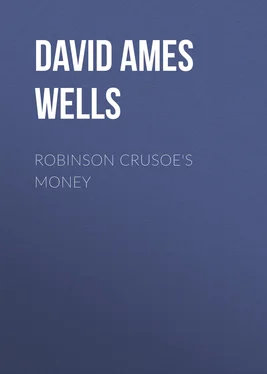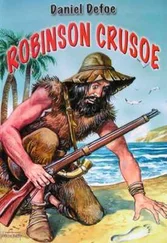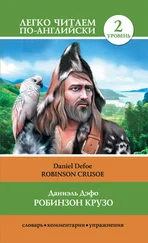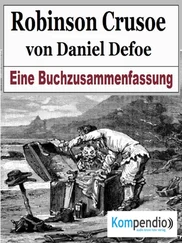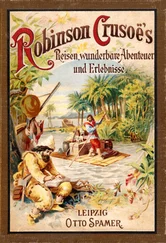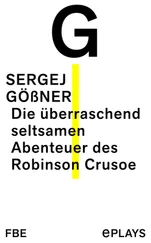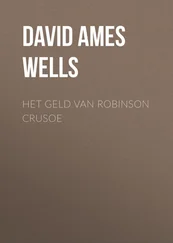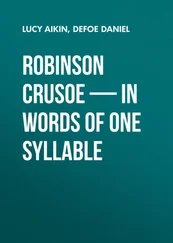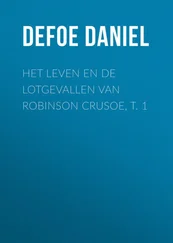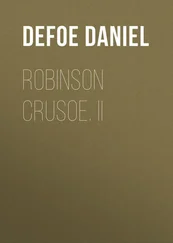David Ames Wells - Robinson Crusoe's Money
Здесь есть возможность читать онлайн «David Ames Wells - Robinson Crusoe's Money» — ознакомительный отрывок электронной книги совершенно бесплатно, а после прочтения отрывка купить полную версию. В некоторых случаях можно слушать аудио, скачать через торрент в формате fb2 и присутствует краткое содержание. Издательство: Иностранный паблик, Жанр: popular_business, foreign_edu, на английском языке. Описание произведения, (предисловие) а так же отзывы посетителей доступны на портале библиотеки ЛибКат.
- Название:Robinson Crusoe's Money
- Автор:
- Издательство:Иностранный паблик
- Жанр:
- Год:неизвестен
- ISBN:нет данных
- Рейтинг книги:4 / 5. Голосов: 1
-
Избранное:Добавить в избранное
- Отзывы:
-
Ваша оценка:
- 80
- 1
- 2
- 3
- 4
- 5
Robinson Crusoe's Money: краткое содержание, описание и аннотация
Предлагаем к чтению аннотацию, описание, краткое содержание или предисловие (зависит от того, что написал сам автор книги «Robinson Crusoe's Money»). Если вы не нашли необходимую информацию о книге — напишите в комментариях, мы постараемся отыскать её.
Robinson Crusoe's Money — читать онлайн ознакомительный отрывок
Ниже представлен текст книги, разбитый по страницам. Система сохранения места последней прочитанной страницы, позволяет с удобством читать онлайн бесплатно книгу «Robinson Crusoe's Money», без необходимости каждый раз заново искать на чём Вы остановились. Поставьте закладку, и сможете в любой момент перейти на страницу, на которой закончили чтение.
Интервал:
Закладка:
Chapter IV.
How They Invented Money
The people on the island—both laborers and employers—were, however, fully agreed that life was too short to waste a good part of it in a game of “blindman’s-buff” on a large scale—for such this attempt to conduct exchanges on a basis of direct barter substantially was; 1 1 That the inconveniences experienced by a community attempting to conduct its exchanges exclusively by pure and direct barter as here depicted, are not only not imaginary, but have their exact counterpart in the present every-day experiences of countries of great geographical area and population, is proved by the testimony of Barth, Burton, and other recent travelers in Eastern Africa. Thus Barth, for example, says (see “Travels,” vol. i., p. 568; vol. iii., p. 203) that he was repeatedly prevented from buying what he absolutely needed—corn, rice, etc.—because he did not have, and could not get, what the people wanted in exchange; and, again (vol. ii., p. 51), he states that so great was the difficulty of getting things in some of the African towns which he visited, in consequence of the people having no general medium of exchange, that his servants would often return from their purchasing expeditions in a state of the utmost exhaustion.
but they nevertheless also clearly perceived that the game would continue to be played, to the interruption of all material progress, unless some other method of exchanging could be devised and adopted. Under the guidance, therefore, as it were, of instinct (Robinson Crusoe encouraging), and without any enactment of law , Twist, Needum, Pecks, Diggs, Friday, Friday’s father, Will Atkins, and every body else, by common consent, agreed to select and adopt some single commodity which all should agree to take in exchange for whatever of products or services they might have to dispose of; so that whenever any one had any thing to exchange, he might first exchange it for this commodity, whatever it might be, and then with such intermediate object purchase at such times and places, and in such proportions as he might desire, whatever he might need. And the moment this was done, civilization on the island took a long step forward, and the first great embarrassment growing out of the attempt to exchange exclusively by direct barter was removed. The tailor was no longer in danger of starving; the mason had no longer any anxiety about procuring clothing, and the laborer received as pay for his labor something which gave him an equivalent in meat, drink, lodging, and other necessities which he might need, without trouble; every man giving freely of his goods or services for the intermediate object, because he knew that every other person desirous of exchanging would be willing to do the same.
Again: the selection of some commodity or article, and the investing it by common consent with a universal and comparatively unvarying purchasing power, also solved the second perplexity, inasmuch as it provided a measure or standard, for ascertaining the comparative value or purchasing power of every other exchangeable commodity or service; and in precisely the same manner as the length or weight of any thing is ascertained, i.e. , by comparing it with some other thing which the community have universally agreed to recognize as a standard of length or weight—as, for example, the rod of wood which we call a yard-stick, or a piece of metal which is termed a pound. “My loaves are each worth ten pieces of the intermediate commodity,” said Needum, the baker! “My coat,” rejoined Twist, the tailor, “is worth a thousand pieces!” The terms of fair exchange between the baker and the tailor would therefore have been one hundred loaves for one coat.
The general name given to the commodities or articles which the people of different countries universally accept in exchange, as the equivalent for all other commodities or services, and as the measure of values, is money .
The commodities or articles which have been selected by men at various times and places to serve as this universal equivalent, intermediate agent, or medium for facilitating exchanges, have been exceedingly various. Among the North American Indians, and the early settlers who came among them, wampum and beaver-skins were used as money; among the natives of West Africa, money consists of small shells called “cowries;” in Abyssinia, the common money of to-day is salt; in Chinese Tartary, it is cubes of pressed tea; and within a comparatively recent period small cakes of soap have been used as money on the west coast of Mexico. Among pastoral people of antiquity, cattle and sheep were so extensively used for money that our common English word pecuniary has its derivation from the old word pecus , signifying a flock. And while we read in Homer that the price of the armor of Glaucus was one hundred head of cattle, we also know that the Zulus of South Africa pay their debts to-day in cattle, and reckon their wealth by the same standard.
Money, therefore, existed before statutes, and exists and is used to-day among nations who have no written or acknowledged code of laws.
It is also of importance to a clear understanding of this subject to recognize at this point another fundamental fact, namely, that there is no evidence that any nation or people has ever adopted, in the first instance, any article or commodity to use as money which did not possess, by reason of some inherent or intrinsic desirable qualities, a natural purchasing power or value. And a little reflection will make it obvious that this must have been so from necessity. For in the absence of all law defining what money should be, and regulating exchanges, the adoption of any article to serve as money which represented little or no effort for its production or accumulation would enable the shrewd, the idle, or unscrupulous, easily, and without fear of punishment or restraint, to take from the rest of the community products which represented the expenditure of time and labor, without giving in return any equivalent. Thus, for example, if dried leaves, or pieces of paper with such marks as any might choose to stamp or scrawl upon them, had been invested with a universal purchasing power, the primary practical result of the use of such money would have been to enable somebody to obtain something for nothing, or to permit those who would not work or save, to rob those who did. The people on the island, being uneducated, never did any such foolish thing; but when they came to study history, they found out, to their great surprise, that the people of other countries had repeatedly used things worthless in themselves as money; and many years afterward a man who aspired to be a great teacher even came to the island from the United States, and endeavored to convince the people that it was a great defect to use any thing as money which had any intrinsic value as a commodity. 2 2 “The precious metals have many qualities which fit them for use as coin money. Their defects are their weight, their intrinsic value as commodities.”— Social Science and National Economy, by R. E. Thompson , Philadelphia, 1875. “The moment it is perceived that money is nothing but a token, it becomes evident that any token currently accepted in exchange of useful services and products of labor will perform the proper functions of money without regard to the material of which it is made; and that the less costly the material out of which money is made, the better for the community that uses it.”— Money, Currency, and Banking, by Charles Moran , New York, 1875, p. 42.
The children of the first school he attempted to talk to soon made his position embarrassing by reading from their histories that the people of every country, especially the poor and ill-informed, who had ever attempted to facilitate their exchanges by using something as money which had no intrinsic value, had in every case been so swindled and robbed, as a consequence, that sooner or later they were always compelled, as a measure of simple self-protection, to abandon its use, and in its place adopt something as money which had a generally acknowledged and comparatively permanent inherent value or purchasing power as a commodity.
Интервал:
Закладка:
Похожие книги на «Robinson Crusoe's Money»
Представляем Вашему вниманию похожие книги на «Robinson Crusoe's Money» списком для выбора. Мы отобрали схожую по названию и смыслу литературу в надежде предоставить читателям больше вариантов отыскать новые, интересные, ещё непрочитанные произведения.
Обсуждение, отзывы о книге «Robinson Crusoe's Money» и просто собственные мнения читателей. Оставьте ваши комментарии, напишите, что Вы думаете о произведении, его смысле или главных героях. Укажите что конкретно понравилось, а что нет, и почему Вы так считаете.
